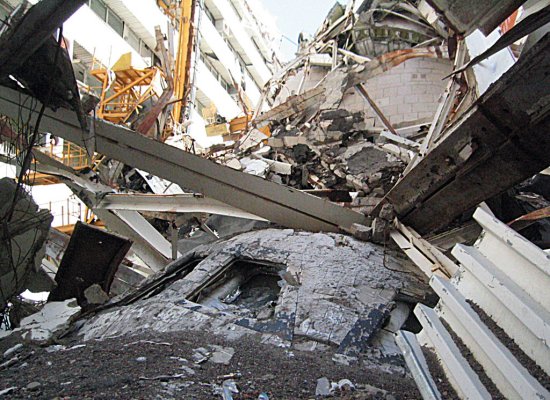Well, why? And Why this millennium specifically? And how? Given the harsh realities of space, not to mention physics, I really don't see how it's possible to leave Earth at all.
Well I'd say this millennium is appropriate since last millennia we went from Crusades to Moon Landings. I think we could swing extraplanetary colonization in the next 1000 years.
The physics are not really that huge of an issue. We've figured that out, now it's about making the economics work out and that is shaping up as well in my opinion.
Their budget in 2005 was $800-$900 million, based on some random article I dug up. That sounds like it could be reasonably true, so let's say that it is.
It is going up to $50 billion over 7 years, so.. about $7 billion a year. That is still less than NASA, but seems like a huge increase and a huge boost in funding.
They can do things a lot cheaper than NASA too, so we can probably expect what, a new cosmodrome, a manned mission to Mars, and a base on the moon?

So that's obviously an exaggeration, but it seems like Russia might just be reawakening as an ambitious space power, and not just somebody who farts a couple guys into space every once in a while for show. That they want to build a new cosmodrome for their operations is very telling. The competition this could again ignite with America seems like a very exciting prospect. So.. The Russians better not screw this up. No explosions please! This isn't KSP, this is real life.
I stand corrected, that is a significant boost in funding. I really, really hope they don't f&^$ this up like they have been lately.
Warpus is kind of right. Their program has no shortage of problems but you'd be surprised what gets accomplished with dedication and perseverance.
...Neither of which the Russians have. It's an aimless decrepit junta and I think even that is putting it mildly. I will be genuinely surprised if this yields any real milestones, let alone a bigger Russian footprint space-wise.
I know, it's so sad.

Here's hoping though.
I was under the impression that the Russian culture was much more pro-space, and that the cosmonauts were culturally more respected.
Culturally, absolutely the Russians are pro-space. Politically, well the elites haven't done much to help the program other than provide the bare necessities to keep it alive. I would even go so far as to say that if it wasn't for NASA paying for flights to the ISS, (and providing a lot of assistance in return for the Russian ISS modules [which even Russian cosmonauts hate]) the Russian manned-flights might have stopped a decade ago. They have nowhere to really go or things to do other than shuttle back and forth to the ISS since the Soyuz is a crap-tastic research platform and well the Russians haven't done a ton of independent LEO research lately (IIRC).
The Russian government has only paid to prop up what remains of their program and a lot of their missions use old Soviet-era hardware (and they have a spectacular failure streak). The manned program is the one area of their program that hasn't been failing with regularity but again, they are being propped up their by NASA and the pressures to not kill international astronauts > pressures to not fail at everything else. So the resources go there and everything else suffers.
Like I said earlier, everyone, including the Russian cosmonauts, dislike the Russian segments of the ISS. They are small, cramped, ugly and way out of date. A Russian cosmonaut (the top Russian cosmonaut, IIRC - the article is in this thread somewhere) came out last year and blasted the Russian program and even specifically mentioned the Russian segments as disgraceful and that everyone up there tends to hang out in the American segments as much as possible. They are just using out of date tech and they never had any sensibilities when it came to crew comfort or convenience.
Then it's worth mentioning that not only do they suck now, compared to where they were 30 years ago, they
really suck. Back then, their tech wasn't so out of date and they had more of it. Here is the Soviet Space Shuttle Buran:
Sexy right? It flew one unmanned test mission where it took off in a blizzard(!) because that's how awesome it was that it can fly in a blizzard where the US Space Shuttle blew up when it launched below freezing....anywho. It worked and it was a marvelous piece of hardware. Here's what happened to it:
After the fall of the USSR, funds for the program dried up and only the bare necessities were kept running. They parked the Buran (which ironically means Snowstorm) in a hangar and meant to refurbish it at some point. It was there for 10 years until the roof collapsed because they didn't even have the money to ensure the building was sound. Now it's a scrap heap. Similarly, the Mir space station was awesomesauce 30 years ago but was allowed to decay, then a tanker crashed into it, a fire broke out and it just started coming apart. Eventually, they ran out of money to even keep it in orbit and they let it burn up in the atmosphere.
So, the point of this long, disjointed and thoroughly terrible post is that yes, Russians are very much pro-space but their political elite do their formerly awesome program a disservice by continually shortchanging it. Factor in a healthy resistance to change and reform within the program and there you have it, a crap program that basically only does what NASA wants them to do like shuttling to the ISS because all their independent missions blow up like the Phobos-Grunt probe.
Apologies for this poorly written post, it's early.





 Here's hoping though.
Here's hoping though.


